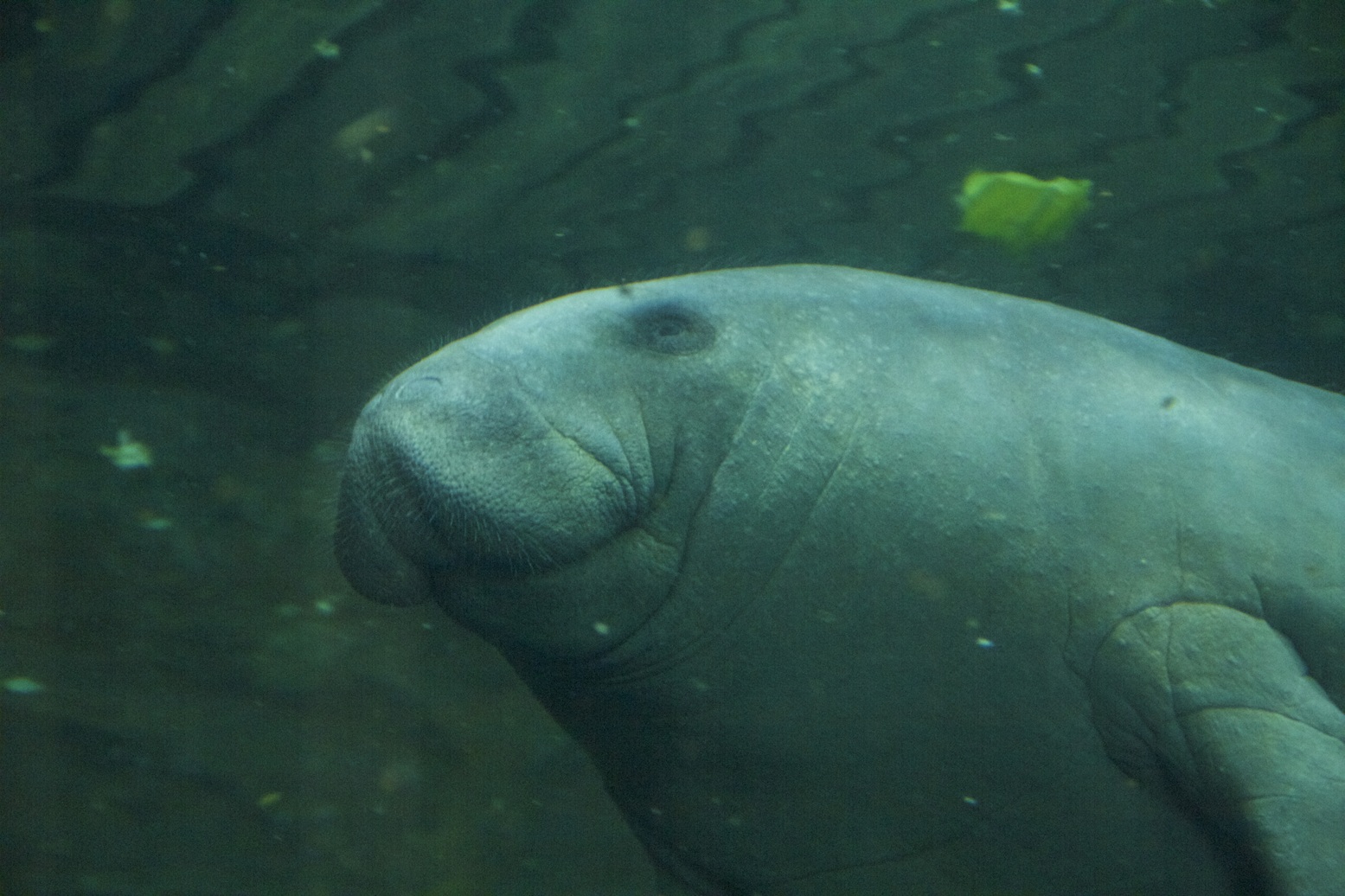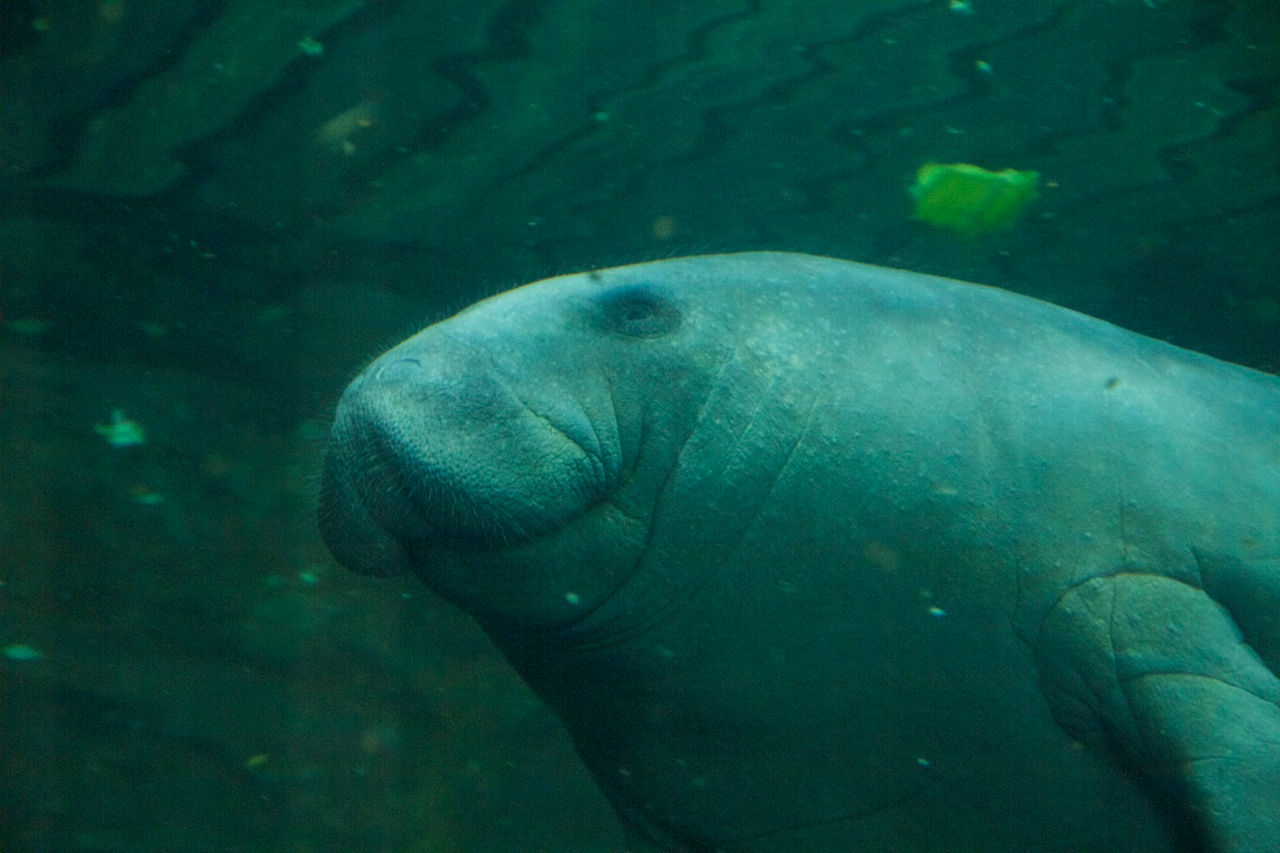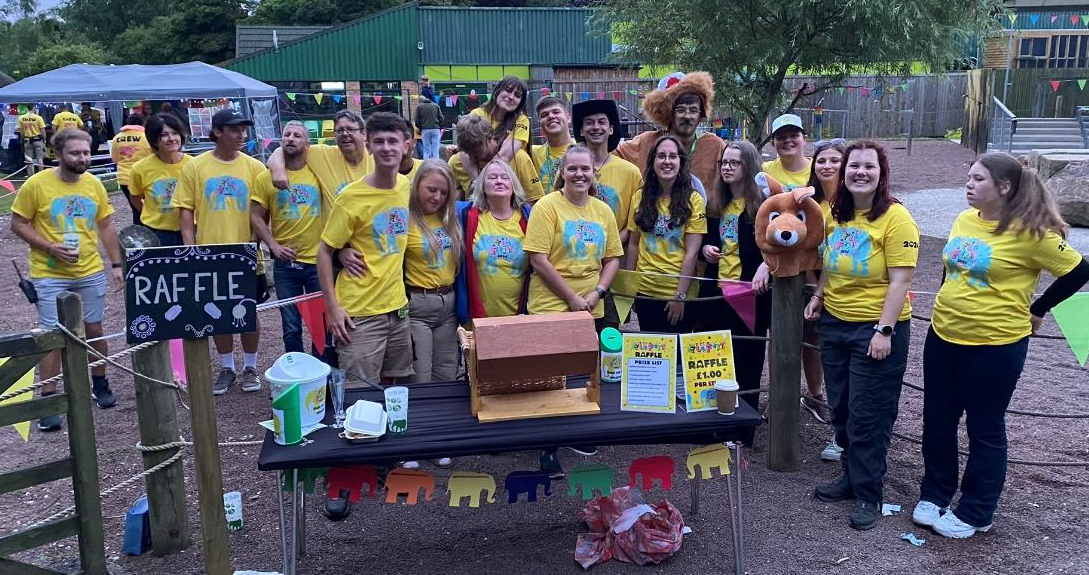
Faunia has reached an extraordinary milestone with the arrival of Belize, a young female Antillean manatee (Trichechus manatus manatus) who has travelled from Burgers’ Zoo in the Netherlands to join local manatees Fiona and Bruno in her new home in Madrid. Her arrival represents a meaningful step forward in the conservation of a species classified as Vulnerable by the International Union for Conservation of Nature (IUCN).
With only 63 manatees living across Europe under the European Endangered Species Programme (EEP) of the European Association of Zoos and Aquariums (EAZA), each individual plays a critical role in securing the future of this gentle, emblematic species. Faunia remains the only animal park in Spain where visitors can meet these remarkable marine mammals.
A Carefully Coordinated Journey
Belize’s journey demanded exceptional planning and teamwork between Burgers’ Zoo and Faunia. Transported inside a specially conditioned vehicle kept at a stable temperature of 22°C and equipped with monitoring systems, Belize traveled under the supervision of caregivers from both parks and Manuel de la Riva, Faunia’s veterinarian.
“Belize remained calm throughout the entire trip, which says a lot about the peaceful nature of manatees,” shared Joeri Peters, one of her caregivers in the Netherlands. “It was an honor to accompany her and ensure she reached her new home in perfect condition.”
Settling Into Her New Home
Now fully installed in the lush ecosystem of La Jungla, Belize is adapting beautifully. She has begun forming bonds with Fiona and Bruno, exploring her environment, and enjoying a diet tailored to her tastes, including escarole, willow branches, lettuce, broccoli, and carrots.
For Faunia’s marine mammal team, the arrival of Belize is both a responsibility and a privilege. As Agustín López, Parques Reunidos’s Director of Biology and Conservation, explains: “Being the only park in Spain that houses this species, it is an honor for us to take part in its care and preservation.”
A Conversation with Jesús David Tavira Guerrero from the Conservation team at Faunia
To delve deeper into what this milestone means, we sat down with Jesús David Tavira Guerrero, a member of the team responsible for Belize’s daily care.
· Belize has just arrived at Faunia. What were your first impressions when you met her?
Meeting Belize was very special. She is a manatee with a calm, charming expression that instantly inspires tenderness. Her impressive size, despite being only three years old, also makes her truly remarkable.
· How does the team prepare for the arrival of a new manatee, especially one as young as Belize?
From the moment we learned Belize would be joining us, we got to work immediately. We held several meetings to review every detail and ensure that everything was ready to welcome her in the best possible way.
We thoroughly analyzed every important aspect of her care: her diet, her preferences, her games, and even her fears, which are essential for us to understand, among many other details. We also planned her transport and transfer to her new home, making sure all her physical and emotional needs were anticipated.
Direct communication with her previous caregivers, who know her deeply, was key in helping her adapt smoothly. The goal was to cover absolutely everything so that her arrival would be safe, comfortable, and calm, and that Belize would feel cared for and supported from the very first moment.
· Every manatee has its own personality. How would you describe Belize’s so far?
For now, Belize remains calm and a bit cautious, which is completely normal given how recent her arrival is. Even so, she is already beginning to explore her new home and interact with Bruno and Fiona. We are certain that once she feels fully confident, she will start showing us the unique personality she has and will gift us truly special moments.
· What are the priority steps in helping her adapt to Fiona, Bruno, and her new surroundings?
From the moment she arrived, we have focused on several priority steps to support Belize’s adaptation to Fiona, Bruno, and her new environment.
First, we are conducting ethograms of both her and the group, which allow us to gather detailed information about their behaviors, interactions, and needs. These observations help us anticipate situations and offer her the right support throughout her adaptation process.
Additionally, during the first few days we established 24-hour shifts to ensure her wellbeing and closely monitor her initial interactions.
Her adaptation has been especially smooth thanks to Bruno and Fiona’s attitude. They are very sociable animals and welcomed Belize naturally, which greatly facilitated her incorporation into the group.
· Manatee care requires very specific conditions. Can you share some of the daily routines that help keep them healthy and comfortable?
Caring for manatees requires very specific conditions, which is why we follow a comprehensive daily routine to ensure their wellbeing.
Each day we perform checks on their environment and carry out cleaning and disinfection tasks. We also prepare their food, as they can consume up to 10% of their body weight. Enrichment activities are an essential part of their routine, together with voluntary medical training sessions focused on their daily health checks and on learning key behaviors for future veterinary procedures.
Throughout the day, we conduct several sessions that not only help strengthen our bond with them but also stimulate them and encourage them to take an active role in their own care.
Thanks to these practices, we can perform complete physical examinations, assess their behavior, and coordinate with the veterinary team to ensure they are always in perfect health. These training sessions also allow us to collaborate in studies that contribute to the research and conservation of the species.
· What do you hope visitors—especially children—take away from meeting Belize?
We hope that visitors, especially children, leave with new knowledge and a meaningful connection to Belize.
The Antillean manatee is a vulnerable species in the wild, and thanks to the work of zoological institutions, we can contribute to its conservation. At Faunia, through talks and educational activities, we aim to bring visitors, particularly the youngest, closer to these animals, fostering environmental awareness and conveying the importance of protecting wildlife.
Belize’s arrival is not just the introduction of a new resident; it is a renewed commitment to conservation, education, and the preservation of one of the planet’s most peaceful creatures.



.jpg)
.jpg)
